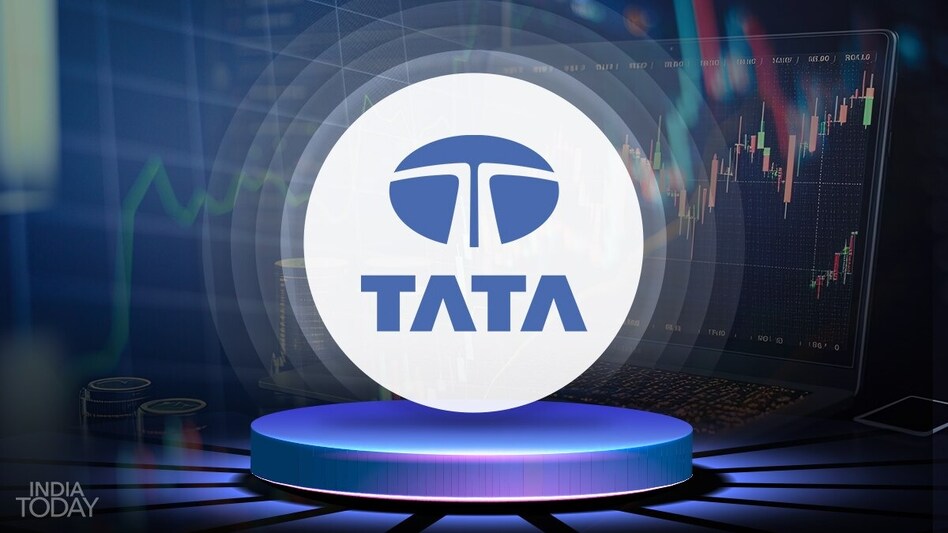The Indian automotive sector witnessed significant market movement on July 30, 2025, as Tata Motors shares dropped over 4% following reports of advanced negotiations for a massive $4.5 billion acquisition deal with Italy’s Iveco Group. This potential transaction has captured the attention of investors and industry analysts worldwide, marking what could become one of the most significant automotive deals in recent history.
Understanding the Market Reaction: Why Tata Motors Shares Declined
Tata Motors experienced a notable decline in its share price, trading at ₹670 around 9:45 AM, representing a 3.3% drop from the previous day’s closing price on the National Stock Exchange (NSE). The stock has already faced headwinds this year, declining 10% since January 2025, reflecting broader investor concerns about the company’s strategic direction and market conditions.
The immediate market reaction to acquisition news is not uncommon in the corporate world. Investors often express caution when companies announce large-scale acquisitions, particularly those involving substantial financial commitments and cross-border complexities. The scale of this potential deal—valued at $4.5 billion—naturally raises questions about funding mechanisms, integration challenges, and long-term strategic benefits.
Breaking Down the Iveco Deal: Strategic Implications for Tata Motors
According to reports from CNBC-TV18, Tata Motors is engaged in advanced discussions with the Agnelli family-owned Iveco Group to acquire their truck division. This acquisition would focus primarily on Iveco’s commercial and defense truck business, representing a significant expansion of Tata Motors’ global footprint.
Historical Context: Tata Group’s Acquisition Legacy
If completed, this transaction would rank as the Tata Group’s second-largest acquisition in history, surpassed only by the landmark Corus Steel acquisition in 2007. For Tata Motors specifically, this deal would eclipse their $2.3 billion acquisition of Jaguar Land Rover in 2008, which transformed the company into a global luxury automotive player.
The timing of these negotiations is particularly strategic, as both companies’ boards were reportedly scheduled to consider the proposal on July 30, 2025, indicating the advanced stage of discussions and potential urgency to finalize terms.
Iveco’s Market Position and Asset Value
Understanding Iveco’s market presence helps contextualize the strategic value of this acquisition. The Italian commercial vehicle manufacturer maintains a significant position in the European market with the following characteristics:
Revenue Distribution and Market Share
Iveco’s industrial business demonstrates strong fundamentals across multiple segments. Trucks constitute the core of their operations, contributing approximately 70% of industrial revenue. The remaining 30% is equally split between buses and powertrain divisions, each contributing 15% respectively.
In terms of market positioning, Iveco holds a 13.3% share in the light commercial vehicle (LCV) segment as of 2024, while maintaining an 8-9% presence in medium and heavy commercial vehicle categories. This market position, combined with their established European distribution networks and manufacturing capabilities, presents significant strategic value for Tata Motors’ global expansion plans.
Tata Motors’ Commercial Vehicle Transformation Strategy
The timing of this potential acquisition aligns with Tata Motors’ broader strategic transformation. The company is currently preparing to demerge its commercial vehicle business into a separate entity by December 2025, a move designed to unlock shareholder value and provide focused management attention to different business segments.
Financial Strength of Tata’s Commercial Vehicle Division
The commercial vehicle segment demonstrates robust financial performance, providing a strong foundation for international expansion:
- Annual Revenue: ₹75,000 crore
- EBITDA: ₹8,800 crore
- Free Cash Flow: ₹7,400 crore
- Expected Status: Net cash positive at demerger
Dominant Market Position in India
Tata Motors commands impressive market share in India’s commercial vehicle sector:
- Heavy Commercial Vehicles (HCV): 49% market share
- Light Commercial Vehicles (LCV): 30% market share
This strong domestic foundation provides the financial stability and market expertise necessary to support international acquisitions and expansion strategies.
Strategic Benefits and Potential Challenges
Advantages of the Iveco Acquisition
The acquisition of Iveco’s truck division would offer several strategic advantages for Tata Motors:
Geographic Expansion: Direct access to European markets with established dealer networks and customer relationships.
Technology Enhancement: Integration of European commercial vehicle technology and engineering capabilities.
Product Portfolio Diversification: Expansion into defense and specialized commercial vehicle segments.
Manufacturing Footprint: Access to European manufacturing facilities and supply chain networks.
Potential Integration Challenges
Large-scale international acquisitions typically present several challenges:
Cultural Integration: Merging Indian and Italian corporate cultures and management approaches.
Regulatory Compliance: Navigating different regulatory environments across multiple jurisdictions.
Financial Integration: Managing currency exposure and international financial reporting requirements.
Operational Synergies: Achieving projected cost savings and efficiency improvements through integration.
Market Outlook and Investor Considerations
The commercial vehicle industry is experiencing significant transformation driven by electrification, autonomous driving technology, and changing logistics requirements. This acquisition would position Tata Motors to better compete in the evolving global commercial vehicle landscape.
Investment Implications
Investors should consider several factors when evaluating this potential acquisition:
Valuation Metrics: Whether the $4.5 billion price represents fair value given Iveco’s market position and growth prospects.
Integration Timeline: The expected timeframe for realizing synergies and return on investment.
Financing Structure: How Tata Motors plans to fund this acquisition and its impact on debt levels and financial flexibility.
Strategic Fit: Alignment with Tata Motors’ long-term strategic objectives and market positioning goals.
Final advice
While the immediate market reaction to Tata Motors’ potential Iveco acquisition has been negative, long-term investors should focus on the strategic merits and execution capabilities rather than short-term price movements. The deal represents a significant opportunity to accelerate Tata Motors’ global expansion in the commercial vehicle segment, leveraging their strong domestic position and financial foundation.
Success will ultimately depend on effective integration, realization of projected synergies, and the company’s ability to compete effectively in the evolving global commercial vehicle market. As negotiations continue, investors and industry observers will closely monitor developments and their implications for Tata Motors’ future growth trajectory.
The commercial vehicle industry’s ongoing transformation presents both opportunities and challenges, making strategic acquisitions like this potentially crucial for maintaining competitive advantage in an increasingly global marketplace.

